In the News

Mayor Harrell Releases Updated “Food Action Plan” to Guide City Policies and Programs, Increase Food Security in Seattle
September 5, 2024 | City of Seattle
Yona Sipos, core faculty in the Food Systems, Nutrition, and Health program is quoted in this recent post by the City of Seattle Mayor’s office, remarking, “The recently updated plan provides an impressive vision of how we can all pursue equity, sustainability, and resilience for our City and region. Food and food systems can truly act as unifying themes for communities, and the Plan’s level of detail provides clear goals and strategies to connect, learn, and contribute positively — which many of us at the University of Washington anticipate doing with students across the Food Systems, Nutrition, and Health program, among others.”
Read article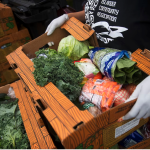
How WA food banks are handling a hunger cliff
March 8, 2023 | KUOW
The state of food insecurity in Washington state, as changes in federal law that will end $95 million a month in food assistance. Recently published new data from a UW and WSU survey highlights that food insecurity was highest in households made up of people of color, families with children, and among renters.
Read article
Fund food insecurity response in WA — and demand national fix
March 6, 2023 | Seattle Times
Editorial featured in Seattle Times highlights legislative House bill 1784 which provides aencies charged with making sure those who are food insecure are asking the state for an emergency infusion of $28 million to help increase inventories at food banks and other agencies purchasing food and supplies, help manage storage facilities, food delivery and logistics, and maintain outreach to those who may not have access or know about such services.
Read article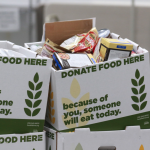
Survey shows food insecurity remains high in Washington state
March 8, 2023 | KOMO News
UW associate professor Jennifer Otten was interviewed in this video and article from KOMO News about the recent results from the WAFOOD survey the impacts on low income households, particularly those with children. How Washingtonians are copying with food and fuel costs is highlighted.
Read article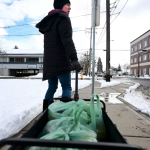
Food insecurity remains high in Spokane and statewide, UW-WSU survey shows
March 5, 2023 | The Spokesman-Review
Dr. Marie Spiker is quoted in this article which highlights the increasing costs of groceries and cuts to the Supplemental Nutrition Food Assistance Program (SNAP), and the most recent data from the WAFOOD survey conducted by UW and WSU in December 2022 – January 2023.
Read article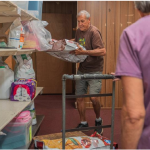
The pandemic is supposed to be over. Why is Pierce County food insecurity still so high?
February 23, 2023 | The News Tribune
Story highlights WAFOOD research published in 2023 which finds almost half of responding households reported experiencing food insecurity in the past month — with the highest occurrences among BIPOC respondents, households with children and renters. Meanwhile, the overall reliance on food assistance programs and food banks remained high.
Read article
SNAP cuts lead to warning of “hunger cliff”
February 27, 2023 | AXIOS Seattle
Story highlighting how pandemic food aid is ending nationwide, and this change in the federal law means more than half a million households in Washington will lose a total of about $95 million a month in food assistance even as food and fuel costs remain high or increase. Data cited in the article was recently published by the UW & WSU WAFOOD survey.
Read article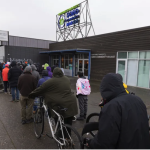
Food insecurity persists in WA, just as emergency benefits expire
February 28, 2023 | Seattle Times
Story provides insight into the region’s looming hunger relief problems citing new data from the UW & WSU WAFOOD survey, and the concern that pandemic-era meal assistance benefits run out this week.
Read article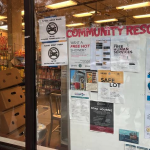
How to Get Connected And Fight Food Insecurity
December 8, 2022 | Seattle Medium
Marie Spiker is quoted in this article which highlights ways to help fight food insecurity in the Greater Seattle area in a meaningful way during the holiday season. Spiker says, “It’s not just about ‘not having food’ — people may find themselves skipping meals, reducing the size of their meals or choosing non-preferred foods for financial reasons.”
Read article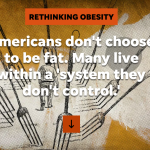
What’s to blame for Americans’ obesity problem? Start with the system.
July 26, 2022 | USA Today
“Obesity can vary by 600% depending on a person’s address,” said Dr. Adam Drewnowski who contributes to this USA Today article discussing the multifactorial issues contributing to the American obesity epidemic.
Read article